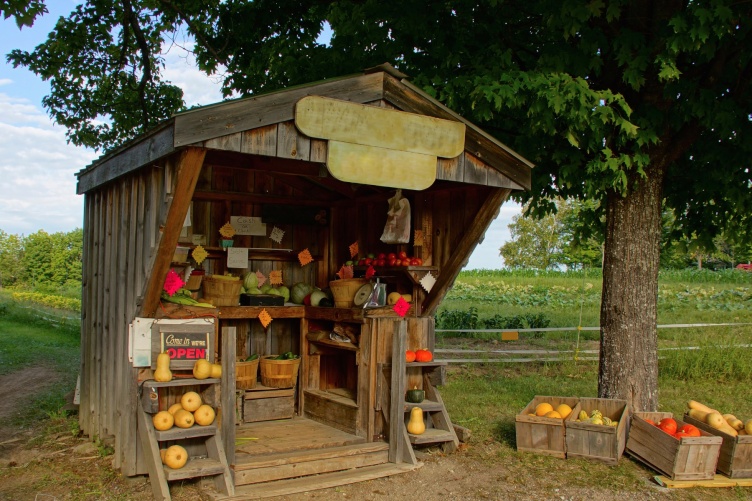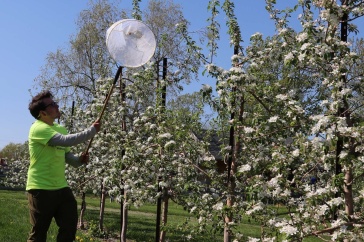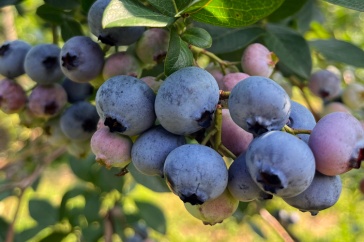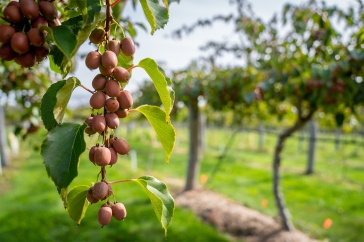
In New England, small- and mid-sized farms face numerous barriers to achieving viability. Many farmers across the region rely on a host of agriculture-adjacent enterprises, like agritourism (or agro-tourism) ranging from farm stays and farm-to-table meals to events like corn mazes, cider mills, pumpkin patches, and similar activities. According to research led by Analena Bruce, a New Hampshire Agricultural Experiment Station researcher and assistant professor in the agriculture, nutrition, and food systems department at COLSA, New England's small- and mid-sized farms often depend on agritourism; off-farm-income; mutual aid; inheritance; and federal, state, and private grants and loans to keep their operations going.
"You have to actually financially support your farm business with these various non-production revenue strategies to make it work," says Bruce.

The use of alternative revenue activities (aside from agricultural production) to keep farms operating isn't necessarily unique to New England farms. Across the country, farmers are relying on “off-farm” sources of income – such as from pensions, investments, or wages/salaries from a spouse's job, a second job, or freelance work – to support their livelihoods. In 2019, 96 percent of farm households derived income from off-farm sources. This is especially true for small farms (those with gross incomes under $350,000), which derive more than half their total household income from off-farm income. Furthermore, the Economic Research Service of the U.S. Department of Agriculture (USDA) predicts that the farming-related income earned by farm households will drop in 2022 and reliance on off-farm income for US farms will increase.
As part of the research led by Bruce, post-doctoral research associate Isaac "Ike" Leslie interviewed farmers across New England.
"We were really intentional in learning from a diversity of farmers based on the scale of their operations, their farming practices, their product mix and marketing strategies, their location and farming experience,” Bruce says. “But also, Ike was very proactive in learning from farmers with marginalized identities, like BIPOC (Black, indigenous, and people of color) and LGBTQ+ farmers – and it’s been really valuable having their perspectives."
All New England farmers face difficult barriers to keeping their farming operations viable.
All New England farmers face difficult barriers to keeping their farming operations viable, adds Bruce. New England’s typical small farm operations can’t compete with larger farm operations. But they also found that BIPOC, LGBTQ+, and similar farmers with marginalized identities face an added layer of unique challenges and discrimination with accessing resources and delivery channels.
One way that farmers can more effectively achieve viability is through Alternative Food Networks (AFNs). AFNs are relationship-based market models founded in values such as environmental sustainability, social justice and rural economic development. They allow farmers and their stakeholders to broaden their customer bases, enhance year-round-profit and generate critical cultural support for farms. Research shows that small- and medium-sized farms generally have higher survival rates when they market directly to consumers, which is a key component of AFNs.
"From our research, we learned that finding ways of collaboratively aggregating and marketing food just makes a lot of sense in New England because the size of our farms are so small here," adds Bruce.
The team was recently awarded two grants from the USDA Agriculture and Food Research Initiative and the USDA Sustainable Agriculture Research and Education program to advance the development of collaborative marketing models and increase public participation in AFNs designed to support small farms in New England. Bruce’s work is also supported by the NH Agricultural Experiment Station, through joint funding of USDA NIFA, under award number 1024406, and the state of New Hampshire.
Learn more about Bruce's Food Systems Lab, visit her lab webpage.
-
Written By:
Nicholas Gosling '06 | COLSA/NH Agricultural Experiment Station | nicholas.gosling@unh.edu

















































